Almost all works on the relationship between evangelism and social action, most books on the church and the poor, and every book out there on the subject of Christians and social justice are argued from experience, a theological bent, a political aisle, or a church experience. Although such platforms have value and have their place, there are few, if any, volumes that seek an exegetical foundation for the author’s conclusion: a what does the text imply? My Wasted Evangelism is an exegetical argument for understanding that social action can be a component of biblical evangelism and ought to be an element in a church’s task of evangelism.
Please consider purchasing a copy of my Wasted Evangelism: Social Action and the Church's Task of Evangelism, a deep, exegetical read into the Gospel of Mark. All royalties go to support our church planting in the Hill community of New Haven, CT. The book and its e-formats can be found on Amazon, Barns'n Noble (and most other online book distributors) or directly through the publisher, Wipf & Stock directly. Here are some excepts from each of the chapters: Samples
0 Comments
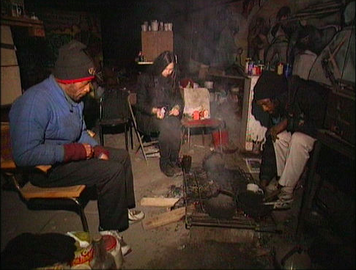 The Mole People of NYC underground The Mole People of NYC underground Some thoughts and ramblings from my sermon this past Sunday at Christ Presbyterian Church in the Hill (New Haven, CT). Our text on Sunday (9/30/18) was Matthew 4:12-22. I talked about church, church planting, and church ministry in uncool places–you know across the Jordon, out of bounds, the wrong side of the promised land, the wrong side of the railroad tracks, the Galilee of Gentiles, yeh them, those guys . . . so uncool and the wrong place to launch a movement that would change the world . . . I talked about the Hill and how outsiders view us . . . my good people let me be really real for a moment . . . and I talked about the Mole people, those cast aways, ignored, forgotten, smelly, hidden folks that live underneath New York City in the vast corridors of old train and subway tunnels . . . uncool . . . and why there isn't a line of Christians lining up for these places (the Hill and the Mole People tunnels) . . . upward mobility is a calling you know, not downward mobility (I am being sarcastic, if you can't tell) . . . where's that line of Christians called to uncool places? Then I talked about Jesus' call to follow him (Mat 4:19, "Follow me and I will make you fishers of men"). Most think this is a call to be fishers of men (whatever you think this means, it isn't); it is a call to follow Jesus and then he promises to make them "fishers of men." And, we saw right there in the story . . . they followed him (so you have the following, 4:20, 22) and then the fisher-training began (4:23 till the end of the Gospel). Matthew, in his crafting of 4:19, the command to follow actually "follow behind me," in other words, watch what I do when we are out in the public. So the fisher-training comes in this set of scenes right away:
I connected the fisher-following to the Great Commission at the end of Matthew. Gave it an intra-Matthean spin in light of the call to follow and the fisher-training: Go, therefore, and make disciples (other fisher-followers who will watch what you do, not just what you preach) of all nations (i.e., ethnic groups/πάντα τὰ ἔθνη), yes out there (to the Jewish first disciples) in very uncool places, among those polytheistic pagans, most definitely those across the railroad tracks. The Hill. The Mole People. Get lined up in those places, baptizing them in the name of the Father and of the Son and of the Holy Spirit, teaching them to observe all that I have commanded you (there's that fisher-training again). Make more fisher-followers because judgment will come (the actual thing behind the "fisher" metaphor), but be assured of this, if you go to those uncool places and make disciples, behold, I am with you always, even to the end of the age when the judgment will come upon the sons and daughters of Adam. Go heal. Be with the oppressed and afflicted. Those having seizures and cannot walk. Those in pain. This is the crowd I went to just after you followed (in chapter 4). This is being fishers of men. And this will be the same crowd, the afflicted and oppressed (note and compare Mat 4:25 and 5:1) that I will teach on that Mount (in chapter 5) is blessed. This will then show that the kingdom of heaven is at hand! For further understanding of the meaning of "fishers of men," check out this Wasted Blog >> Dangerous Sunday Devotions: Called to be fisher-followers of Jesus, emptying our advantage out for those at a disadvantage
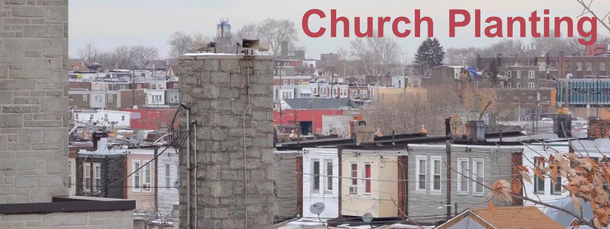 Some exegetical fun with Matthew 3:3: The ESV and almost every Bible version I can find translates Mat 3:3: “The voice of one crying in the wilderness: ‘Prepare the way of the Lord; make his paths straight.’” The Greek is pretty close (almost dead on) with the Isaiah 40:3 of the LXX (i.e., the Greek translation of the Old Testament): φωνὴ βοῶντος ἐν τῇ ἐρήμῳ ἑτοιμάσατε τὴν ὁδὸν κυρίου εὐθείας ποιεῖτε τὰς τρίβους τοῦ θεοῦ ἡμῶν (LXX) What our modern Greek version of Matthew 3:3 does (which is reflected in the English translations) is to put in commas where there wouldn’t have been commas in the original Greek Matthew. And, the modern Greek version makes a capital Ἑ (epsilon) to give the impression that’s where the “quote” starts (Ἑτοιμάσατε, “Prepare”). This would not have been the case in the original as well. However, if we leave things as they are (or were, that is), the “quote” could have started (and probably was meant to be understood) at “In the wilderness,” which more accurately follows the Hebrew of Isaiah 43:3: A voice cries: So, John, as Matthew probably intended, was more likely heralding, “In the wilderness prepare the way of the Lord!”
Why is this important? Because this, (i.e., “in the wilderness,” “in the desert”), is where God’s royal road was to be built (cf. Isaiah 40). The “desert” (the “wilderness”) is the prophet’s way of referring to the chaos of the uncreated world of Genesis 1:1 and the condition of the land now inhabited by people that had returned to “chaos” and darkness, a land lacking water, a dry place (spiritually and actual) where God must recreate. Jesus is introduced into a place, a desert (if you will), where he will recreate a people for his Father’s glory. Both Isaiah and Matthew are drawing upon this Genesis creation. This is church. This is church planting. This is more, an intentional church planting in the hinterlands, as Sean Benesh wrote, in “the uncool places.” “In the wilderness prepare the way of the Lord.”
Living Bread Ministries plants indigenous churches among the poorest communities around the globe through a community development model. Join me in helping them accomplish their goals. Join my small fundraiser.
My goal is modest, only $200. But I should have enough friends to multiply my small contribute of $25 to reach the $200. That's only 7 friends giving $25 each. But of course, any gift of any size would be greatly appreciated. Consider deferring ONE Christmas gift to help support church planting among the poorest of us on this planet. Thanks, for considering your part. Chip's Living Bread Fundraiser >>
Living Bread Ministries is leading a comprehensive church planting movement among the global poor. We plant churches among the marginalized, proclaiming the Gospel and making disciples while assisting them to meet the comprehensive needs of their community. Our unique approach combines church planting, humanitarian aid, and development work in the context of an indigenous local church. Please consider donating through my fundraiser >>
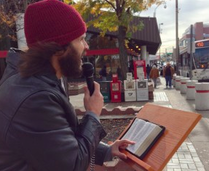 Sometimes we should be deeply impacted by a text of Scripture, not so much as an encouragement or a comfort, but seriously scaring us to death. We are conditioned to seek solace, comfort, encouragement, even exhortation, in the Bible. We are told and, perhaps, have taught others to hold on to its promises. But, this is only half right. We should be consoled by texts meant to console, yet scared to death by texts meant to slay us. Ephesians 3:1-13 is one such text of Scripture (despite most preachers never presenting this path of relevance or application from this pericope of Paul’s words–at least to my knowledge). “For this reason I, Paul, a prisoner for Christ Jesus on behalf of you Gentiles—assuming that you have heard of the stewardship of God’s grace that was given to me for you, how the mystery was made known to me by revelation, as I have written briefly. When you read this, you can perceive my insight into the mystery of Christ, which was not made known to the sons of men in other generations as it has now been revealed to his holy apostles and prophets by the Spirit. This mystery is that the Gentiles are fellow heirs, members of the same body, and partakers of the promise in Christ Jesus through the gospel.” Here some of my thoughts that arise from Paul’s words to the church in Ephesus:
I recall, now too many years ago to acknowledge, telling some bible college students that were complaining about the rule that all hats, including baseball caps, were to be taken off inside a campus building: “If you can’t take off those caps now, what makes you think you’ll be able to die for your faith in some god-forsaken land when all indication seems to indicate that God has abandoned you?”
If you are a Christian (especially a Christian leader), you shouldn’t be able to read Ephesians 3:1-13 with any measure of comfort either—and it should scare the hell out of you, as well. The question remains, nonetheless, where will you go? To whom will you go to? With whom will you live and ministry so that all, that is those now outside the church, may have access to the Father?
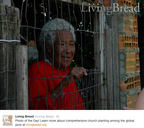 Living Bread Ministries intentionally seeks to plant churches in global neighborhoods surrounded by poverty. Here is the mission and purpose in their own words . . . see Wasted Evangelism in Action page |
AuthorChip M. Anderson, advocate for biblical social action; pastor of an urban church plant in the Hill neighborhood of New Haven, CT; husband, father, author, former Greek & NT professor; and, 19 years involved with social action. Archives
February 2024
Categories
All
|
Pages |
More Pages |
|
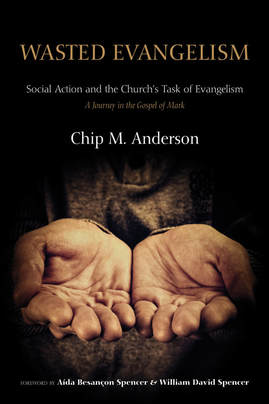


 RSS Feed
RSS Feed